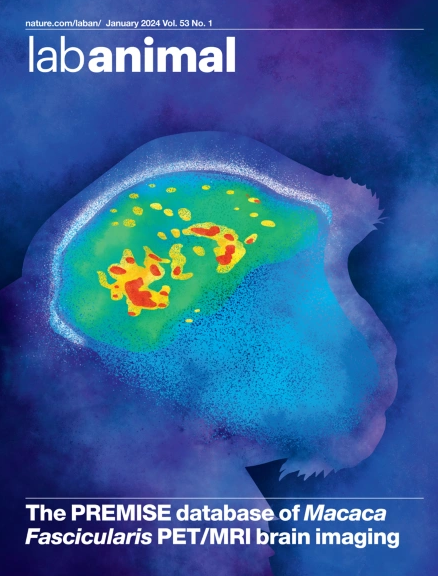精子生育能力中的氧化作用
IF 5.9
3区 农林科学
Q1 VETERINARY SCIENCES
引用次数: 0
摘要
体外受精(IVF)是一种帮助克服不孕症的生殖方法。除了临床环境,体外受精也用于支持生命科学研究的实验动物的生产。然而,有必要进一步提高生育率和技术的成功。《生殖生物学》上的一项研究分析了巯基氧化还原状态的影响,先前发现巯基与精子成熟、精子膜蛋白和小鼠的受精能力有关。与未处理的精子相比,用5,5-二硫比斯-(2-硝基苯甲酸)(DTNB)氧化精子膜蛋白中的硫基降低了精子的体外受精能力。进一步分析表明,精子生育能力下降是由于精子穿透卵母细胞周围的透明带功能障碍所致。巯基氧化的增加也减少了精子获能所需的钙通量。研究小组观察到,当他们使用dtnb处理过的精子对小鼠进行人工授精时,精子的生育能力也出现了类似的下降。这些结果表明,精子膜蛋白中巯基的氧化还原状态影响体外受精的生殖成功。原始参考文献:Nakao, S. et al . Biol。重现17,ioae183 (2024)本文章由计算机程序翻译,如有差异,请以英文原文为准。
Oxidation effect in sperm fertility
求助全文
通过发布文献求助,成功后即可免费获取论文全文。
去求助
来源期刊

Lab Animal
农林科学-兽医学
CiteScore
0.60
自引率
2.90%
发文量
181
审稿时长
>36 weeks
期刊介绍:
LabAnimal is a Nature Research journal dedicated to in vivo science and technology that improves our basic understanding and use of model organisms of human health and disease. In addition to basic research, methods and technologies, LabAnimal also covers important news, business and regulatory matters that impact the development and application of model organisms for preclinical research.
LabAnimal's focus is on innovative in vivo methods, research and technology covering a wide range of model organisms. Our broad scope ensures that the work we publish reaches the widest possible audience. LabAnimal provides a rigorous and fair peer review of manuscripts, high standards for copyediting and production, and efficient publication.
 求助内容:
求助内容: 应助结果提醒方式:
应助结果提醒方式:


